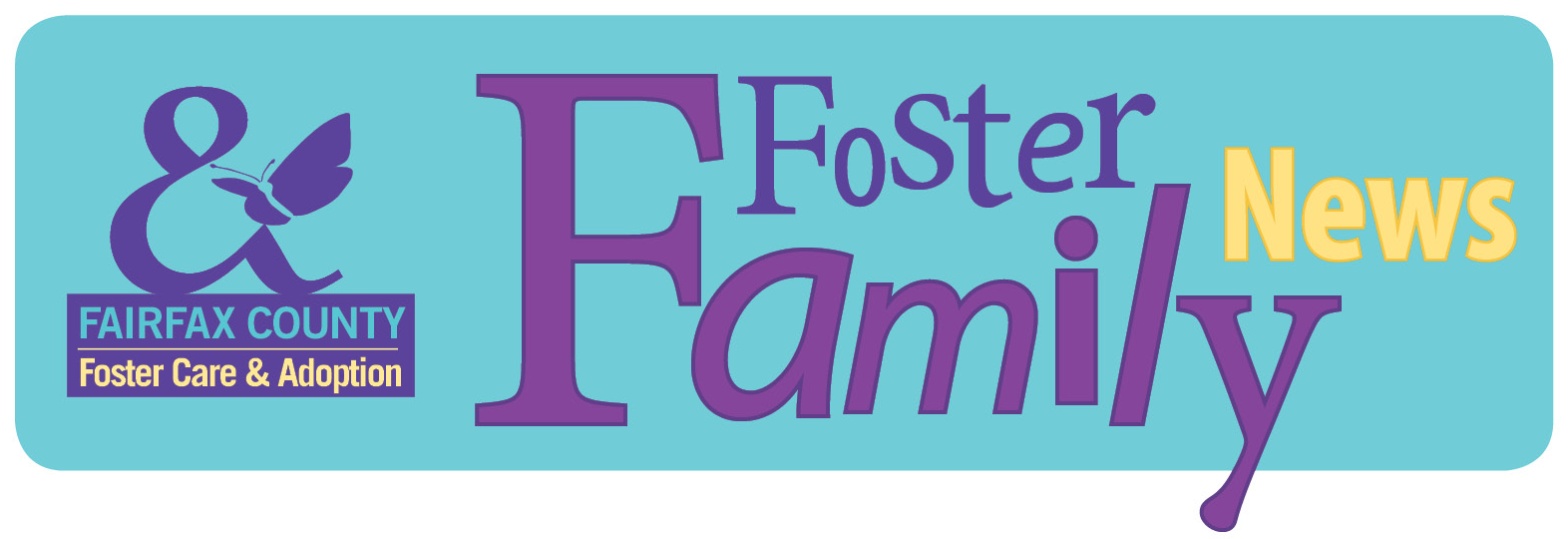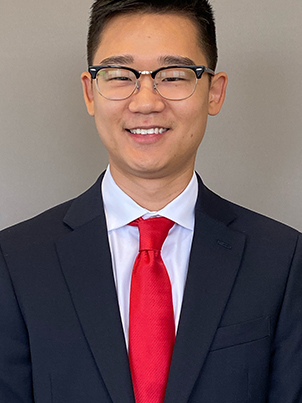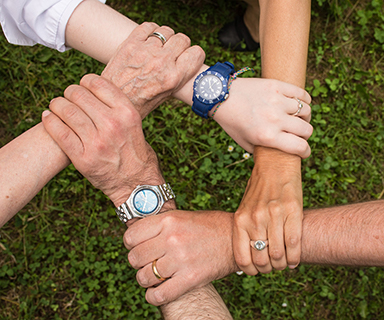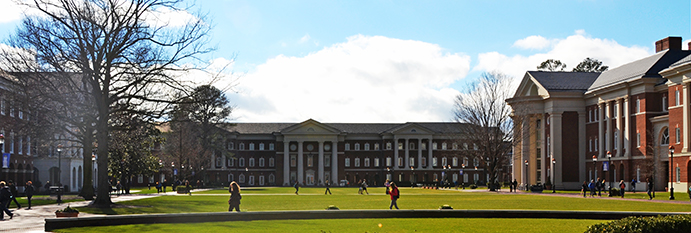
Joel’s placement in foster care began unexpectedly at 16 years old. His life has been full of ups and downs since that fateful day seven years ago but he has persevered to reach his goals. He tells his story of how he made it through those years and worked to become the accomplished 23-year-old young man he is today. He also shares words of wisdom and encouragement for teens and foster parents.
Foster Family News: So, I have learned a little bit about your background. Staff told me about a lot of your accomplishments when you were in foster care: working 32-hour weeks in your senior year, balancing school and golf so you could play in college, all while maintaining a high GPA. So, I'm hoping that you can share some wisdom and hope for children currently in foster care and foster parents.
 Joel Choi: It was a hard time back then, working 32 hours and going to school. But it meant that I was able to drive and pay off car insurance and things of that nature, and having that mobility was important. I couldn’t have done what I did without it. I was grateful for that, and it just happened to be that the foster parent I was with at the time had a car that I could use. Besides that, if I was willing to put in the time and effort to do it, then I could do anything I put my mind to. To answer your question, as long as you are open to the idea to working while you are in school, I think it’s possible, but it is all about your mindset.
Joel Choi: It was a hard time back then, working 32 hours and going to school. But it meant that I was able to drive and pay off car insurance and things of that nature, and having that mobility was important. I couldn’t have done what I did without it. I was grateful for that, and it just happened to be that the foster parent I was with at the time had a car that I could use. Besides that, if I was willing to put in the time and effort to do it, then I could do anything I put my mind to. To answer your question, as long as you are open to the idea to working while you are in school, I think it’s possible, but it is all about your mindset.
FFN: Honestly, it's impressive taking on that kind of workload outside of school as well. So, you're saying it's about your mindset, but you should know, it also is quite impressive.
JC: Thank you, thank you. I had to adjust to whatever I was facing at the moment. When I made the transition to care, I didn’t know what to expect, so it was definitely hard, but I stuck to my goal which was to get to college, play golf, and have a successful life. I stayed focused on school, and work was something I thought I had to do to accomplish some of the things I wanted at the time, like being able to afford my phone bills and things of that nature. It was kind of a shock for me, because nobody really teaches you how to manage your bills. It wasn't the ideal circumstances, but it did help me understand what it would take to be independent at a much quicker rate.
FFN: If it's not too uncomfortable for you to share. Could you speak briefly about the circumstances that led to you being in foster care?
JC: Yeah, of course. So, around the time I was 14 or 15, things at home were getting worse in terms of my relationship with my dad. He was physical with me, and so it just kind of got to the point where I needed to make a change for myself. I was scared at the moment, and I didn't really expect to get into foster care if I told somebody what was happening. I told a counselor, and so they had to call social services. That same night, I wound up in the foster care system.
FFN: So, I was told that you spent time in a group home and a foster home. So, what were those experiences like for you?
JC: So, when I first went into care, because it was so abrupt, I was sent to a group home, Alternative House (now called Second Story) in Vienna. It is definitely a very structured place, so being able to see my friends on my own time wasn’t a luxury I had at that moment. It almost felt like I was being punished, because they took away everything. You’re on a set schedule with maybe 30 minutes to see your friends, so the only way I could see them was if they came to see me. It's kind of cool to see that other kids there who are struggling are in a safe environment, but the structure itself was very difficult and stressful.
After going from the group home to my parents’ house and back again, I was told that I would have a foster parent for a longer period of time. I am not sure if I was doing the interview or if I was being interviewed, but I met Julie at the time, and things worked out. So, I ended up being placed with her in the foster care system. It had its own challenges, obviously. I had to learn a whole new cultural dynamic I hadn’t grown up with. I had grown up in a very Asian culture and Julie had more of an Italian background. Understanding the way each other communicated and learning what was expected of me and how to voice what I needed was definitely tough. I went from understanding my family’s dynamic, to a brand-new dynamic in the group home, and then the foster home, and it was challenging. There were life lessons to be learned through it. I would not be where I am today without having those life lessons.
FFN: So, is that the foster home where you spent most of your time?
 JC: Yes, but I also spent time in respite care (respite care allows for children in care to be placed with other foster families for a short time to allow their primary caretaker to take a break) with a lady who is still a big part of my life, Lesley. Julie went on vacation, and I couldn’t go. Lesley and I clicked, so I was just really open and able to talk with her easily. It was something that I hadn’t experienced, so from then on, we stayed in touch. She’s helped me tremendously throughout the whole process. She helped me manage everything I was dealing with at the time. It was nice to have somebody to talk to. When I entered foster care, there was a mandatory counseling you have to do. I hadn’t sought it out, and I wasn’t looking forward to it, but it was nice to be able to talk with someone whom I was comfortable talking with. It helped out.
JC: Yes, but I also spent time in respite care (respite care allows for children in care to be placed with other foster families for a short time to allow their primary caretaker to take a break) with a lady who is still a big part of my life, Lesley. Julie went on vacation, and I couldn’t go. Lesley and I clicked, so I was just really open and able to talk with her easily. It was something that I hadn’t experienced, so from then on, we stayed in touch. She’s helped me tremendously throughout the whole process. She helped me manage everything I was dealing with at the time. It was nice to have somebody to talk to. When I entered foster care, there was a mandatory counseling you have to do. I hadn’t sought it out, and I wasn’t looking forward to it, but it was nice to be able to talk with someone whom I was comfortable talking with. It helped out.
FFN: That leads into my next question. How were you supported through your time in foster care and beyond by county staff or foster parents?
JC: Right. I felt kind of lost when I first went into foster care, like I didn’t really have anyone that I would call family. It was definitely a rough time, with lots of things that no one would think you would have to worry about, so once I met Lesley, it was great to realize that there were people out there that you could confide in and who would support you. It was really comforting that there were people like my caseworker, Anne Ziegler, and Chuck Berlin (Permanency and Life Skills worker) who reached out and always wanted to be as much help as they could.
Also, I developed a friend group when I started college, and I slowly created my own support group and a modern family where I know if anything were to happen to me, they would always be there.
FFN: Can I ask a little bit more about your relationship with Lesley?
JC: While I was in care, I would stay with her when I needed respite. It started that way, and it grew into her almost being a motherly figure for me. Even when I didn’t understand what I was looking for back then, she kind of understood. She would guide me through advice. She would share her experiences, and from there I would make my own experiences. This continued once I started college. She offered a place to stay when I was on college breaks, so, I would come back and spend the breaks at her house. Now, I spend all the holidays and vacations with her as much as I can. She adopted Mikalah who is now in college, so Lesley and her boyfriend Jeff, along with Mikalah and I are a modern family.
FFN: That’s great. Can you tell me about the path you took after you graduated from high school?
JC: I knew that I wanted to go to college. That had been one of my main goals. I used golf as a platform to see which schools I could get into. I got into a school called Christopher Newport University, and that’s where I started my college career.

I would recommend that if given the opportunity other foster kids should try to live on campus. Typically, NOVA (Northern Virginia Community College) is a route many use, and I did go to NOVA my sophomore year, but living on campus is a completely different experience, and I met a bunch of friends while living on campus who I still talk to. It helped me understand and cope with some of the things I was dealing with at home. It was an escape for me, to live on a campus and do college things, and learn a lot about myself. It is an experience that I would recommend that everyone should have.
I transferred to University of Lynchburg where I finished after three years with an accounting degree and started working with a firm called Aronson, LLC. In Rockville. I’ve been blessed. During the summers of my college career, I spent a lot of time doing internships and the last one turned in to a direct hire job. Starting my senior year, I knew I had a job lined up which was very comforting.
FFN: Did you move to Rockville to be near your job?
JC: For a while I lived on and off with Lesley, and on and off with friends. Now I have recently moved to Tyson’s in my own place.
FFN: It is awesome that you had a job lined up right out of school. I think I read about you getting a scholarship to go to school as well?
JC: Right, When I was in high school, I spent over 70 hours writing essays for scholarships and I used a website called fastweb.com. I spent hours upon hours writing essays for every scholarship that I thought I was eligible for. I didn’t hear back from a lot. It was discouraging to not hear back. There happened to be one that I received in the mail called the Gates Millennium Scholarship. I looked it up online, and it was the one I had written eight essays for. It didn’t really give a number as to how much the scholarship was, so I didn’t think much of it. I told Lesley about it and she discovered that it was one of the biggest scholarships you can get. It was practically a full ride. I moved on to the next step, and they had a luncheon at the Kennedy Center. It just blew my mind away. That was when I realized what I had actually accomplished. It didn’t really sink in until then. I felt like all the hard work I had put in was paying off, finally.
FFN: I can imagine it changed your life.
JC: From then on it was important to work hard and not waste it. I finally got a job and I am happy where I am now.
FFN: You said you are working for an accounting firm?
JC: I am an auditor and assurance associate.
FFN: So, what are your goals for the future?
JC: House, car, family for sure, but right now I am trying to soak in all that has happened to me so far. Now that I have my own apartment this year and I’m making an income, I am enjoying what I have. In terms of concrete measurable goals, I have always thought about getting to this point and now that I am here, I will have to think about what is next.
FFN: You have plenty of time to plan for the future, you are right to enjoy it! So, you played golf in school and it seems like it has been a passion of yours. Do you still play, and what else do you do for fun?
 JC: I quit competitive golf my senior year of college, because I wasn’t enjoying my life and I didn’t want it to consume my senior year. So, I play for fun now. I love going to the gym, hanging with my friends. I am busy at work and I don’t have a lot of time. For a while, I was working a second job on the weekends to make extra money and that took up a lot of my time as well. That job at the restaurant gave me the opportunity to learn Spanish and Korean as well. It was pretty awesome. I just loved being able to talk with everyone, and it was great to be submerged in that atmosphere. It was a lot of work but worth it.
JC: I quit competitive golf my senior year of college, because I wasn’t enjoying my life and I didn’t want it to consume my senior year. So, I play for fun now. I love going to the gym, hanging with my friends. I am busy at work and I don’t have a lot of time. For a while, I was working a second job on the weekends to make extra money and that took up a lot of my time as well. That job at the restaurant gave me the opportunity to learn Spanish and Korean as well. It was pretty awesome. I just loved being able to talk with everyone, and it was great to be submerged in that atmosphere. It was a lot of work but worth it.
FFN: Have you been able to maintain a relationship with any of your biological family members?
JC: Yes, my little sister. I have always wanted to be a part of her life. I have always actively tried to stay in her life. I occasionally take her out to lunch or dinner. It sucked to not be able to watch her grow. I remember one time, she was at my hip and the next time I saw her, she was at my head. Missing out on all that growth wasn’t the happiest thing for me. In terms of my parents, there has been no contact. I’m sure maybe one day there might be, but for now, I am not bitter, but I don’t see the need for it as long as I am moving forward and they’re not reaching out.
FFN: What would be your advice for people thinking about becoming foster parents or considering adoption based on your experience?
JC: Try to get an understanding of where the foster kids are and gear your parenting toward the goals that they have, not the goal you have. I know when I was in foster care, the foster parent I had at the time had a vision of having a kid that she needed to guide, to take their hand and make them do chores and things like that. As a 16-year-old who would eventually age out of foster care, I was at a point of needing to be independent and learning to do things on my own and make my own choices. The more you listen and talk to teenagers, the better you can understand how to compromise through that communication.
FFN: Do you have any tips or lessons learned for youth who are in foster care now?
JC: Yes. I have a lot, but the biggest one I would say is to remember that it is not permanent. You are in a bad spot now but look forward to what is going to happen and what can you do to get to a place where you are going to be happy and where you want to be. For me, I kept focused on getting to college and getting a job, and what I needed to do in order to get there. I was always reaching out to people. Don’t be scared to ask for help, because there are people who want to help you. It is just a matter of voicing what you need and what you want. Aside from that, always work hard for what you want. I know it gets stressful and it can feel like a dead end at time, but things do change over time. You have to keep working for it.
This article posting is part of the Foster Family News monthly newsletter designed to keep foster parents informed about all the new and notable happenings in Fairfax County.
Learn about what the Foster Care & Adoption program has planned for foster families - stay on top of trends, participate in trainings and learn about policy changes.

